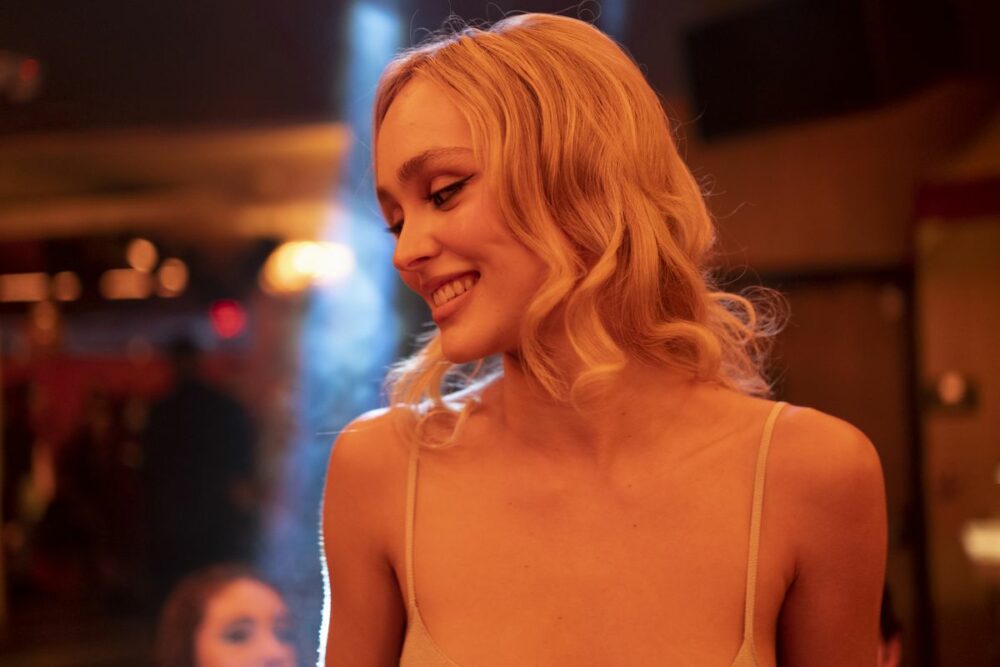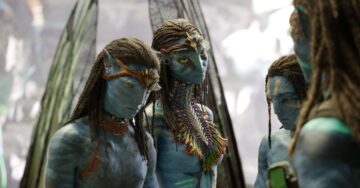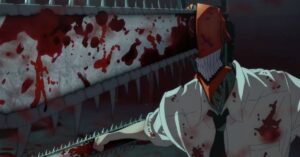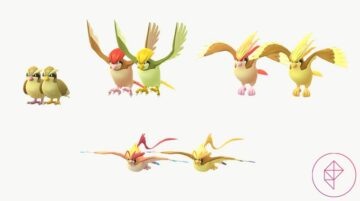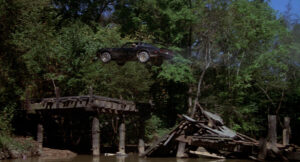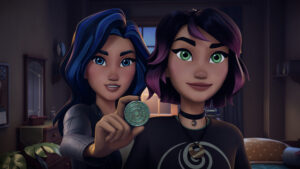Few shows this year have been as deftly hyped as The Idol, HBO’s sleek new drama from Euphoria creator Sam Levinson and Abel “The Weeknd” Tesfaye. Over the last few months, the series has been discussed and promoted in the most sensational terms. Billed by HBO as a “twisted, turbulent love story,” trailers dropped with tone-setting lines like “When was the last truly fucking nasty-nasty bad pop girl?” The show premiered at the Cannes Film Festival — a statement in itself — and reports from the festival cast the show as a work of shock jock lasciviousness. The Idol, it seemed, was a scandal in the form of a prestige drama.
The reality is much more boring than that.
“Pop Tarts & Rat Tales,” The Idol’s premiere, is split in two parts: The first half reads like a one-act play about Jocelyn (Lily-Rose Depp), a mononymous pop star on the day of a PR crisis. This is the best The Idol has to offer. Across the show’s opening 30 minutes, viewers learn that Jocelyn is attempting to mount a comeback after a nervous breakdown led her to cancel a tour.
Over the course of an afternoon, Jocelyn does a risqué photo shoot, rehearses the choreography for her new single’s music video, and sits for an interview with Vanity Fair. Meanwhile, in the background, the gears of modern celebrity turn around her. An intimacy coordinator has a farcical argument with a manager over the nudity in the shoot. PR flacks discuss how to spin Jocelyn’s image after her breakdown — “mental illness is sexy,” one opines. And finally, a full-blown publicity crisis emerges when a private, explicit photo of Jocelyn surfaces online, and her team tries to figure out the best way to handle it before breaking the news to her.
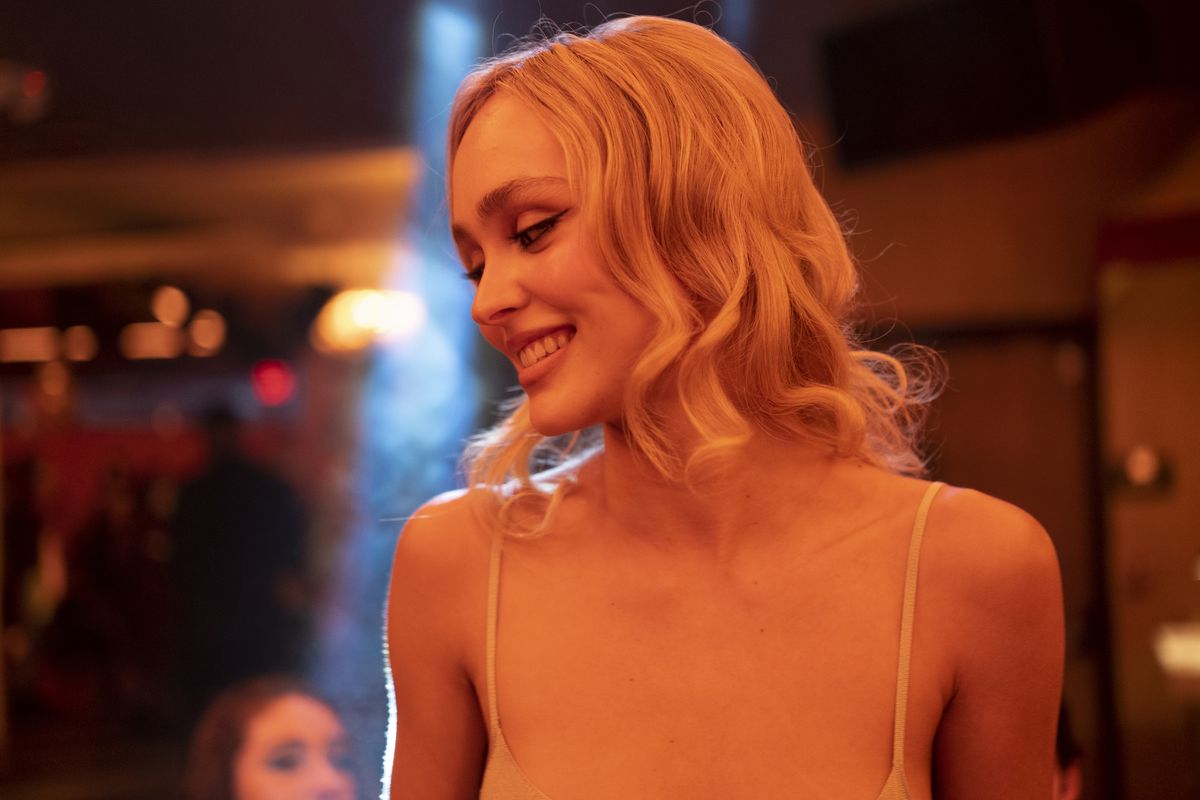
The first half of “Pop Tarts & Rat Tales” has the beginnings of a compelling drama, perhaps even a dark comedy that’s like Veep with more nudity: a cynical farce that casts everyone in an artist’s orbit — from managers to intimacy coordinators to best friends — as amoral vampires that have somehow made themselves necessary to the human being they are commodifying for profit. (The episode’s most darkly funny scene involves Jocelyn’s team trying to determine the angle from which the leaked photo was taken.)
Unfortunately, Tedros (Abel Tesfaye) arrives to take Jocelyn, and the audience, away from that show. If the first half of The Idol’s premiere is dark Hollywood satire, the second half is the sleazy love story that the marketing promised, only delivered without much conviction. Tedros meets Jocelyn in a club he owns, ominously lit the entire time while he whispers to her how she should be having way more fun as a huge pop star.
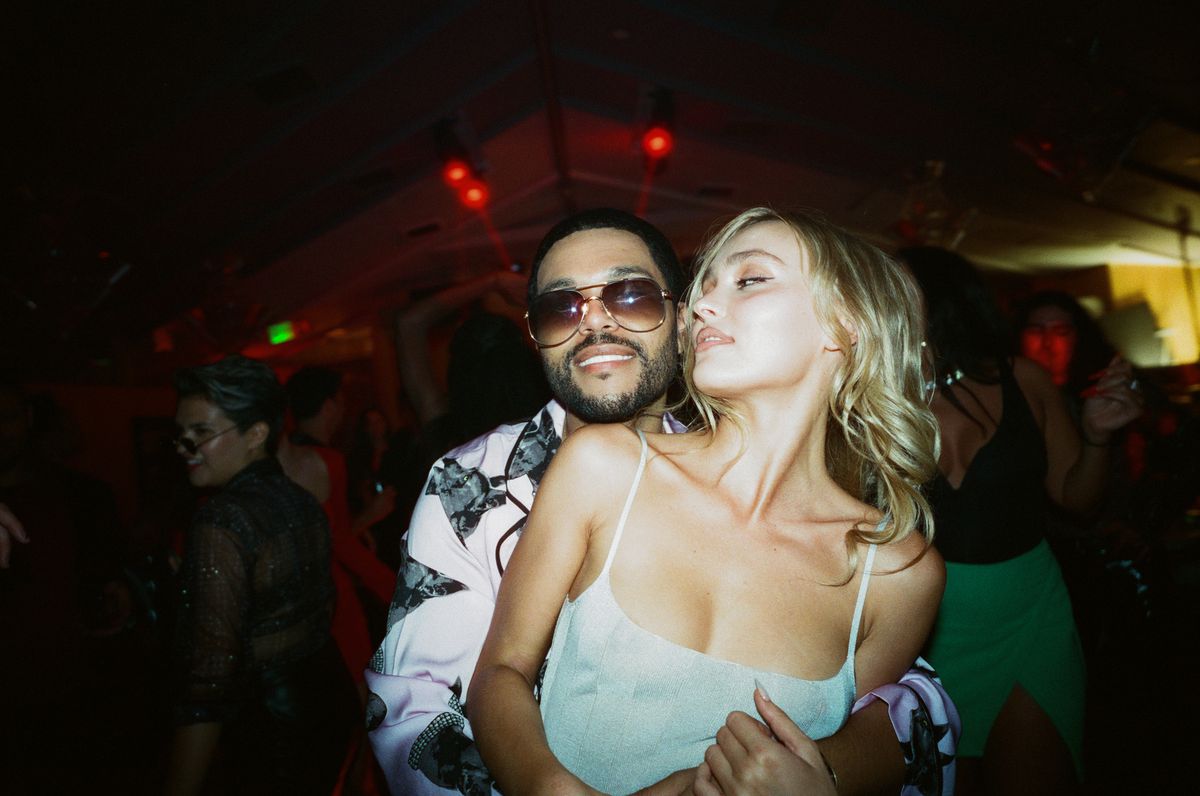
For Jocelyn, Tedros is a knife that cuts through the bullshit, an impulsive and devilish seducer who isn’t interested in telling her what she wants to hear. For the audience, he’s an obvious manipulator with designs on inserting himself into Jocelyn’s life and art. Mostly, however, he’s just dull, something that The Idol underlines in a scene where Jocelyn is watching Basic Instinct with her best friend Leia (Rachel Sennott) — a film full of the kind of danger and chemistry that The Idol cannot seem to find in its two leads. Depp has the harder of two lead roles, required by the script to be distant and somewhat unknowable, but struggles in scenes with Tesfaye, who has no problem playing sinister and enigmatic but can’t find a way to play up any other aspects of his character. If one way of understanding on-screen sexuality is as a conversation between two characters physically negotiating how much they want to disclose to one another, Tesfaye comes across like he’s lecturing, and Depp like a bored student.
Like The Weeknd’s modern work, which is defined by carefully constructed characters and elaborate concerts calibrated in a tightly controlled experience, The Idol is too overengineered to truly provoke, titillate, or start a conversation. It surrounds its characters with mess but doesn’t show them being messy; its transgressions amount to cheap jabs at progressives and its lead character having a kink. There could still be a good TV show here, maybe. But right now it just feels like bait.
- SEO Powered Content & PR Distribution. Get Amplified Today.
- PlatoAiStream. Web3 Data Intelligence. Knowledge Amplified. Access Here.
- Minting the Future w Adryenn Ashley. Access Here.
- Buy and Sell Shares in PRE-IPO Companies with PREIPO®. Access Here.
- Source: https://www.polygon.com/23750166/hbo-idol-weeknd-episode-1
- 30
- a
- About
- across
- after
- amount
- an
- and
- Another
- any
- ARE
- around
- Art
- as
- aspects
- At
- audience
- away
- background
- bad
- BE
- been
- before
- behind
- being
- BEST
- between
- Breakdown
- Breaking
- but
- by
- carefully
- Celebrity
- character
- characters
- Cheap
- chemistry
- club
- Comedy
- comes
- compelling
- Concerts
- controlled
- Conversation
- Coordinator
- could
- course
- creator
- crisis
- Danger
- Dark
- day
- defined
- delivered
- designs
- determine
- disclose
- discuss
- discussed
- Distant
- does
- Drama
- Elaborate
- emerges
- entire
- even
- everyone
- experience
- fair
- festival
- few
- Figure
- Film
- Finally
- find
- First
- Flash
- For
- form
- friend
- Friends
- from
- full
- fun
- funny
- Gaming
- good
- half
- handle
- has
- Have
- having
- HBO
- he
- hear
- her
- here
- his
- Hollywood
- How
- How To
- however
- HTTPS
- huge
- human
- if
- illness
- image
- in
- interested
- Interview
- intimacy
- into
- Is
- IT
- ITS
- itself
- jpg
- just
- kind
- last
- lead
- leads
- LEARN
- Led
- Life
- like
- Look
- love
- made
- manager
- managers
- Marketing
- meant
- Meanwhile
- meets
- minutes
- Modern
- months
- more
- most
- mostly
- mount
- much
- Music
- necessary
- New
- news
- nightclub
- no
- now
- obvious.
- of
- off
- offer
- on
- One
- online
- only
- opening
- or
- Orbit
- Other
- out
- over
- parts
- perhaps
- plato
- plato data intelligence
- platodata
- platogaming
- play
- Playing
- pop
- pr
- premiere
- prestige
- private
- Problem
- Profit
- promised
- RAT
- Reality
- red
- required
- right
- roles
- satire
- scandal
- scene
- scenes
- second
- seem
- Series
- she
- shot
- should
- show
- shows
- sits
- someone
- something
- Spin
- split
- square
- Star
- start
- Statement
- still
- Story
- Student
- Take
- taken
- Team
- terms
- than
- that
- The
- Them
- themselves
- there
- they
- this
- Through
- tightly
- time
- to
- too
- truly
- turbulent
- turn
- tv
- tv show
- two
- under
- understanding
- up
- Video
- viewers
- want
- wants
- was
- watching
- way
- What
- when
- where
- while
- WHO
- with
- without
- Work
- year
- youtube
- zephyrnet
